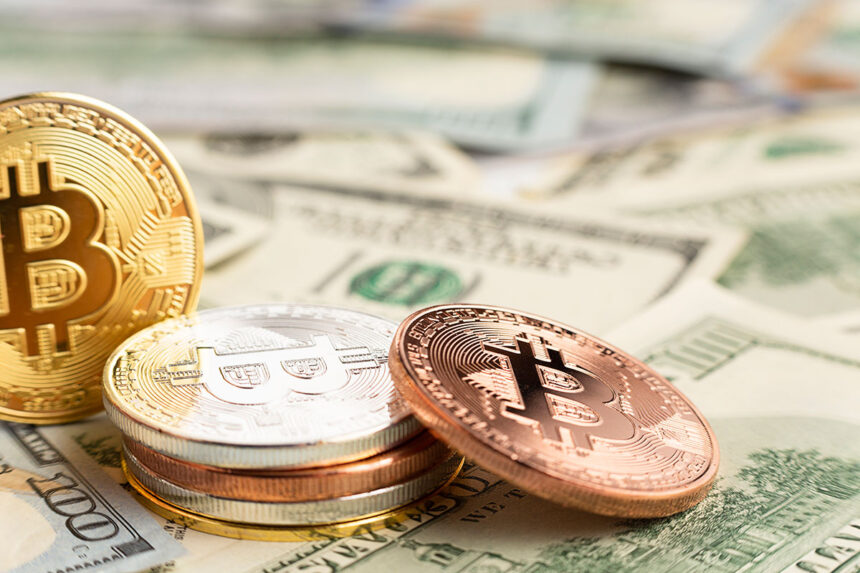Introduction: The $1.5 Billion Alarm Bell
The recent $1.5 billion hack of Bybit, one of the world’s leading crypto exchanges, has sent shockwaves across the entire cryptocurrency ecosystem. This incident, believed to have been orchestrated by the notorious Lazarus Group—a state-sponsored North Korean hacking collective—marks one of the largest crypto heists in history.
Beyond the staggering numbers, this breach highlights a harsh reality for all crypto holders: no exchange is truly immune to cyber threats. As the market matures, so do the sophistication and frequency of cyber-attacks. For every investor, trader, and institution involved in crypto, this is more than just another headline—it’s a critical reminder to reinforce your digital defenses.
In this post, we’ll break down the importance of securing your digital assets and provide essential strategies to protect your holdings from potential threats.
Bybit, a Dubai-based crypto exchange known for its robust trading volumes and global user base, found itself at the center of a massive security breach. Hackers managed to exploit vulnerabilities in Bybit’s systems, siphoning off an estimated $1.5 billion in various cryptocurrencies, including Bitcoin (BTC) and Ethereum (ETH).
Initial reports suggest that the Lazarus Group was behind this highly sophisticated attack, which targeted not just Bybit’s platform but also attempted to breach connected wallets and decentralized finance (DeFi) protocols.
This attack has raised serious questions about the security measures of centralized exchanges and has left countless investors questioning: How secure are my digital assets?
Why You Should Be Concerned
The Bybit incident is not an isolated case—it’s part of a growing pattern of large-scale cyber-attacks targeting the crypto industry. In 2023 alone, cybercriminals stole over $3.8 billion from crypto platforms, with centralized exchanges and DeFi protocols being prime targets.
Even the most secure platforms remain vulnerable. If a major player like Bybit can be breached, what does that mean for everyday investors?
The harsh truth is that relying solely on exchanges to safeguard your assets is no longer enough. In a decentralized financial landscape, you are your own bank—and that comes with the responsibility of securing your funds.
How to Protect Your Digital Assets in 2025
In light of the Bybit breach, it’s time to strengthen your crypto security strategy. Here are the top measures every crypto investor should implement:
1. Use Cold Storage for Long-Term Holdings
Centralized exchanges are convenient for trading, but they should never be your long-term storage solution. Instead, move the bulk of your holdings to cold wallets—offline hardware wallets that are immune to online attacks.
Top Cold Wallets to Consider:
• Ledger Nano X
• Trezor Model T
• Ellipal Titan
Why It Matters: Offline storage ensures that your assets remain disconnected from the internet, making them virtually unhackable.
2. Enable Two-Factor Authentication (2FA) on All Accounts
2FA is a must for every crypto user. By adding an extra verification layer, you make it significantly harder for hackers to gain access to your accounts—even if they manage to steal your password.
Best 2FA Apps:
• Google Authenticator
• Authy
• YubiKey (for hardware-based 2FA)
3. Limit Exposure on Centralized Exchanges
Never leave large sums of cryptocurrency sitting on exchanges. Only keep what you need for active trading and withdraw any excess to a personal wallet.
Best Practice: After every major trade, transfer your funds to a cold wallet or secure decentralized wallet.
4. Regularly Update Security Protocols
Hackers often exploit outdated software vulnerabilities. To stay protected:
• Update your wallet software regularly.
• Use up-to-date antivirus and anti-malware programs.
• Keep your operating system patched and updated.
5. Be Wary of Phishing Scams
Phishing remains one of the most common attack vectors. Scammers often impersonate exchange platforms or wallet providers through fake emails or social media links.
How to Protect Yourself:
• Always verify URLs before entering sensitive information.
• Never share private keys or seed phrases.
• Use email filters to detect and block potential phishing attempts.
6. Diversify Your Crypto Storage
Don’t keep all your digital assets in one place. Spread your holdings across:
• Cold wallets (for long-term storage)
• Hot wallets (for small, active trades)
• DeFi wallets (for decentralized trading and staking)
This minimizes the risk of losing everything in the event of a single breach.
7. Monitor Exchange Security Audits
Stay informed about the security measures of the platforms you use. Regular third-party security audits are a sign of a trustworthy exchange. Avoid platforms with poor security records or those that lack transparency.
What Does the Future Hold for Exchange Security?
In response to the Bybit hack, many exchanges are tightening their security measures by:
• Implementing AI-driven threat detection systems
• Increasing insurance coverage for user funds
• Enhancing withdrawal whitelisting and multi-signature requirements
However, no security system is foolproof. The responsibility for protecting your digital assets ultimately falls on you, the investor. As we’ve seen with this latest attack, even the largest platforms can be vulnerable.
The Bottom Line: Don’t Wait Until It’s Too Late
The Bybit hack is a stark reminder of the importance of proactive security. In a decentralized financial system, you are your own first line of defense.
Here’s a quick recap of what you should do today:
 Move long-term holdings to a cold wallet.
Move long-term holdings to a cold wallet.
 Enable 2FA on all crypto accounts.
Enable 2FA on all crypto accounts.
 Avoid storing large amounts on exchanges.
Avoid storing large amounts on exchanges.
 Stay alert for phishing scams.
Stay alert for phishing scams.
 Regularly update security software.
Regularly update security software.
The crypto world offers incredible opportunities—but with great reward comes great responsibility. Stay informed, stay secure, and protect your financial future.
Join the Conversation
Have you taken steps to protect your digital assets? What security practices do you recommend? Share your thoughts and experiences in the comments below!
For more insights on crypto security, market trends, and the future of decentralised finance, follow www.theLuxeLedger.co.uk—your ultimate guide to mastering the digital economy.
